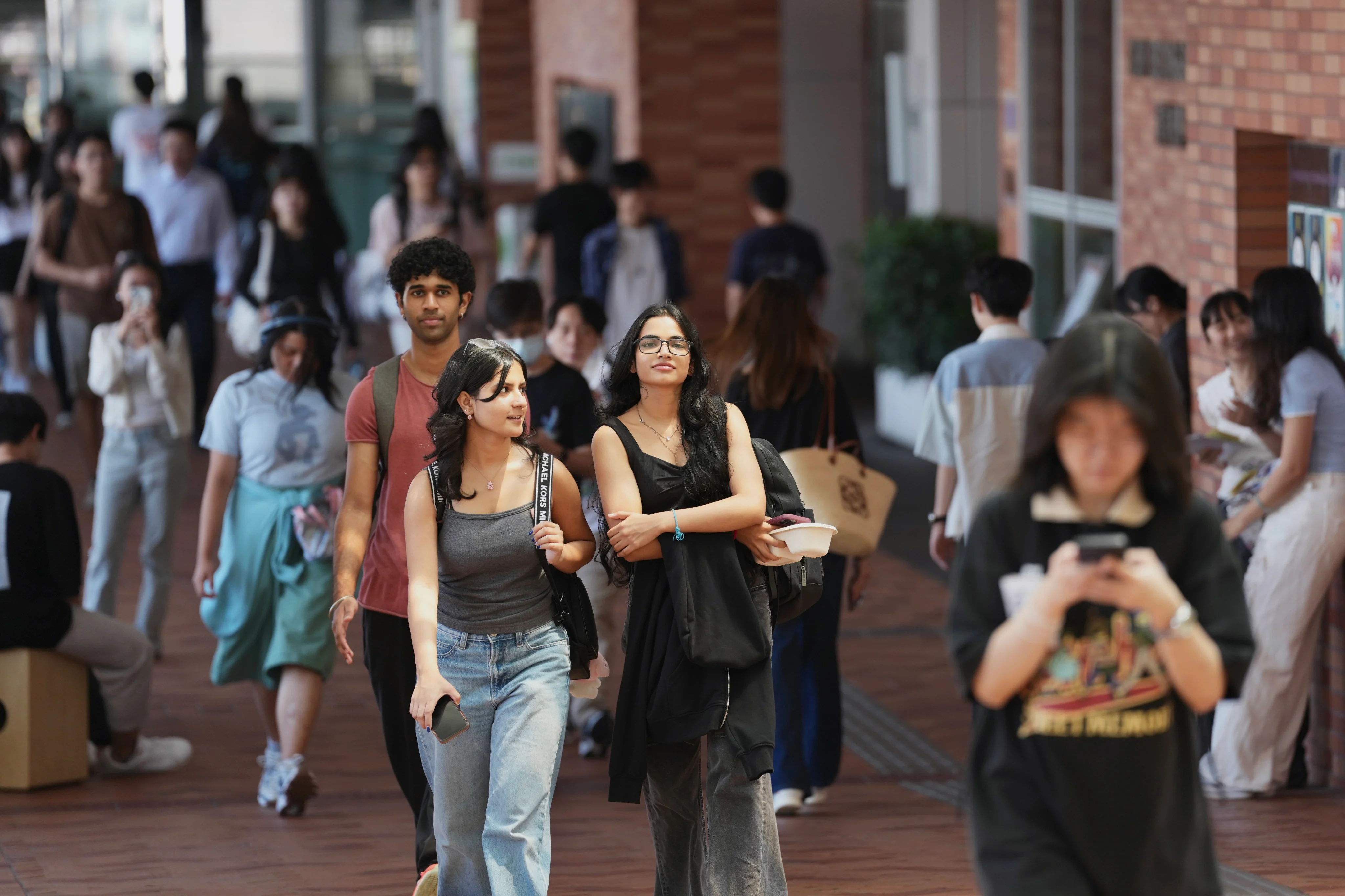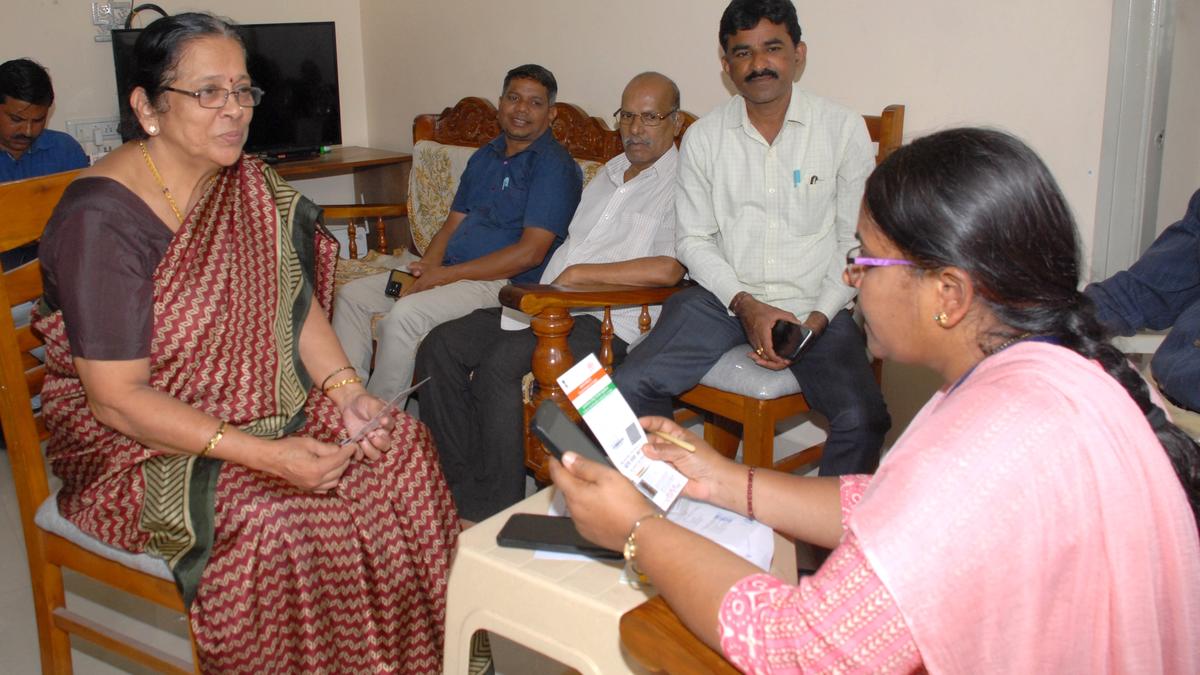By Matthew Cheng
Copyright scmp

Hong Kong should gradually expand its non-local university student numbers to carefully balance their learning experience, social acceptance and potential effects on the rental market, according to an academic specialising in education policy.
Joshua Mok Ka-ho, provost and vice-president of Hang Seng University, also said the city had to increase efforts to attract more top-quality scholars and address high rental prices if it aimed to become an education hub.
In his annual policy address earlier this month, Chief Executive John Lee Ka-chiu proposed raising each public university’s enrolment cap for non-local undergraduate students to 50 per cent of local students, up from the current 40 per cent, starting from the next academic year.
This measure forms part of efforts to develop Hong Kong into an international education hub.
Mok said the new policy was on the right track but called for a progressive increase in the intake of non-local students, warning that a “bottleneck” in hostel availability would make it difficult for them to secure accommodation, thereby affecting their learning experience.
He added that a gradual expansion, rather than a sharp influx, would also help improve inclusiveness within society.
“Readiness is not only about recruiting quality students, it’s about readiness in the society, whether the local community would be supportive, whether the housing market is good enough for supporting them,” Mok said.
He referred to Australia, where an excessive number of non-local students had caused public discontent, suggesting Hong Kong learned from overseas experiences as these challenges were common worldwide.
The Australian government introduced limits on international student enrolment last year in response to rising rental prices driven by record immigration.
Mok also cautioned against treating the 50 per cent quota as a “performance indicator,” emphasising that universities should prioritise quality of learning and integration.
Hang Seng University, a self-financing institution not funded by the University Grants Committee, does not benefit from the increased quota for non-local students.
In February, the Education Bureau announced a phased increase in the quota for students from mainland China, Macau and Taiwan at six self-financing institutions, from between 10 and 20 per cent to 40 per cent, starting this academic year.
Hang Seng University admitted around 600 non-local students in 2025–26, accounting for 26 per cent of its 2,300 new undergraduates, a 10-point increase from the previous year, according to Mok.
Mok, also chair professor of comparative policy at the university, has been conducting a research project funded by the Chief Executive’s Policy Unit since June. The study examines factors influencing PhD students’ choice of destination and strategies adopted by foreign countries to attract them.
It involves interviews with more than 50 professors, administrators and students, alongside a global survey.
Preliminary findings revealed that high rental prices in Hong Kong deterred some interviewees, while others expressed concerns about the availability of school places for their children. Mok called for more housing support for researchers and postdoctoral fellows.
Political stability and policy certainty were key factors in PhD students’ decisions, with some interviewees expressing pessimism due to United States President Donald Trump’s policies targeting international students and rising far-right sentiment in Britain.
Mok said Hong Kong should seize the opportunity to promote itself as an education hub and attract more world-leading scholars, which was vital for drawing PhD students from abroad.
“Education is about whether we have very strong professors, we have to invest in people, and then we draw the students,” he said.
He added that the city also needed to improve its research environment and build well-established laboratory facilities.
In July, Mok released another study he led, which found that 85 per cent of children of talent scheme professionals were dissatisfied with life in Hong Kong, citing a lack of social recognition and struggles with Cantonese as major concerns.
He suggested the government and universities collaborate with NGOs and churches to help non-local students adapt to life in Hong Kong.
Mok recalled a visit by mainland students to a retirement home, where they felt encouraged to realise that the residents also spoke Cantonese with a strong accent, just like them.
Apart from facilities, it was also important to provide newcomers with sufficient language and social support as “cultural integration matters”, he said.
Non-local students in Hong Kong are predominantly from the mainland. In 2024–25, 17,161 non-local students attended Hong Kong’s eight publicly funded universities, with 12,386 of them, or 72 per cent, from the mainland.
The city’s leader has vowed to diversify local campuses by attracting more overseas students, especially from Belt and Road Initiative countries.
Mok echoed the need to diversify local campuses, saying the city could also draw students from African countries, which had strong ties with the mainland.



